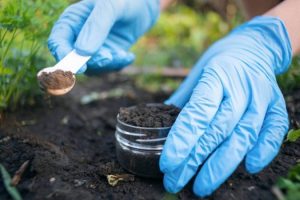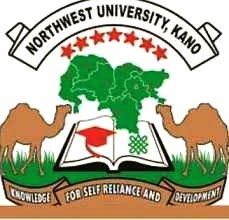Best Universities to Study Soil Science in Nigeria
Soil science is the study of soil as a natural resource on the surface of the Earth. Soil scientists analyze the physical, chemical, biological, and mineralogical composition of soil to determine how it can be used and managed sustainably.
Studying Soil Science in Nigeria takes up to 4-5 years. To have a successful career as a soil scientist in Nigeria, a degree in agriculture, environmental science, or a related field can prepare you with a strong foundation in soil science, geology, biology, and chemistry.
In today’s article, we’ll be looking into the best universities to study soil science in Nigeria. Read through till the end to know more about the best universities that offer this amazing course in Nigeria
Best Universities to Study Soil Science in Nigeria

Below are the best universities to study soil science in Nigeria
1. University of Ibadan
The University of Ibadan is Nigeria’s premier university and a top choice for soil science. It offers both undergraduate and postgraduate programs in soil science and related fields like crop science, forestry, and agricultural extension. With a long history of agricultural research, UI has excellent facilities and partnerships with organizations like the International Institute of Tropical Agriculture (IITA).
2. Ahmadu Bello University
Ahmadu Bello University (ABU) in Zaria is another highly-ranked university for soil science. It has a Department of Soil Science with programs at the bachelor’s, master’s and doctoral levels. ABU is especially well-known for research in areas like soil fertility, soil classification, and the management of Nigeria’s savanna soils. The university also operates an arboretum and botanical garden that provide opportunities for hands-on learning.
3. University of Agriculture, Abeokuta
The University of Agriculture in Abeokuta (UNAAB) focuses on training in agricultural fields like soil science, crop science, agricultural economics, and extension. It offers bachelor’s, master’s and PhD degrees in soil science and related programs.
Also, if you want to study soil science in Nigeria, the University of Ibadan, Ahmadu Bello University, and the University of Agriculture in Abeokuta are three of the top choices, with strong programs, research opportunities, facilities, and faculty.
READ ALSO: Best Universities to Study Engineering Studies in Nigeria
4. University of Ibadan
The University of Ibadan is Nigeria’s premier university and a top choice for soil science.
5. Ahmadu Bello University
Ahmadu Bello University in Zaria has a reputable Faculty of Agriculture with a Department of Soil Science.
6. University of Nigeria, Nsukka
UNN’s Department of Soil Science offers both undergraduate and graduate degrees in Soil Science and Technology.
Conclusion
While the job market for soil scientists in Nigeria is relatively small, demand is growing. Pursuing a degree in soil science, environmental science, or a related field can open up many rewarding career paths.
READ ALSO: Best Universities to Study Forestry in Nigeria
FAQs
Here are some frequently asked questions about the top universities for soil science in Nigeria.
1. What are the top universities for soil science in Nigeria?
Some of the best universities in Nigeria for soil science include:
- University of Ibadan
- Ahmadu Bello University
- University of Nigeria, Nsukka
- Federal University of Agriculture Abeokuta
2. What degree programs are offered?
The major degree programs in soil science offered at Nigerian universities are:
- Bachelor of Science (B.Sc.) in Soil Science – A 4-year program covering soil chemistry, physics, microbiology, fertility and conservation.
- Master of Science (M.Sc.) and Doctor of Philosophy (Ph.D.) in Soil Science – For those interested in a career in research or academia. Programs last 2-3 years for M.Sc. and 3-5 years for Ph.D.
- Some schools also offer postgraduate diplomas (PGD) in Soil Science for those with a bachelor’s degree in a related field.
3. What career opportunities are there?
A degree in soil science can lead to careers such as: soil scientist, agronomist, environmental consultant, agricultural officer, researcher, lecturer, and conservationist. There are opportunities in government agencies, universities, research institutes, and private companies.









